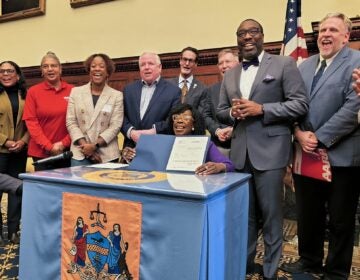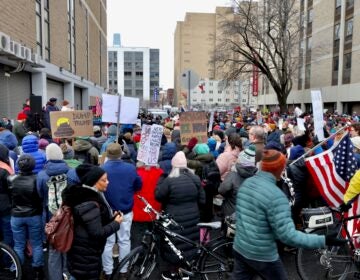Philly Clout: Pew Report Says City 3-1-1 Still Needs Work
Philly Clout: Pew Report Says City 3-1-1 Still Needs Work
During the first year of operations at the city’s 3-1-1 non-emergency call center, nearly one in four requests for service was not completed in the promised time frame, according to a new report from the Pew Charitable Trusts.
The report, put out by Pew’s Philadelphia Research Initiative, looks at how Philly’s 3-1-1 program performed in its first year — and compares the local 3-1-1 with similar programs in 14 other municipalities. It also notes that 3-1-1 has struggled with limited funding, makeshift technology and staff turnover.
For the full report click here.
According to city data, the 3-1-1 line — launched Dec. 31, 2008 — took 1.2 million calls and 60,000 service requests in 2008. The line is designed to provide information on city services and take requests for services like towing abandoned cars or filling potholes. The report notes that 3-1-1 had a bumpy start in early 2009, with long wait times for callers, but improved over the course of the year.
About 23 percent of the requests for service made through 3-1-1 in 2008 were not completed on time, according to the report. That was largely due to “the fumbled handoff of 13,000 housing-inspection requests,” the report states, noting that some requests were not received or not completed due to problems connecting the 3-1-1 database with licenses and inspections.
To better serve citizens, 3-1-1 will have to better integrate the call center software with work-order systems in the individual departments, the report states. It also notes that significant cost savings through 3-1-1 are likely years away.
The city launched the 3-1-1 non-emergency call line with great fanfare. But budget constraints have limited the program. Initially, the call center was available around the clock, but last summer those hours were reduced to 8 a.m. to 8 p.m. on weekdays and 9 a.m. to 5 p.m. on Saturdays. And earlier this year, Mayor Nutter said he couldn’t commit to purchasing a customized software system, estimated at $5 to $7 million.
WHYY is your source for fact-based, in-depth journalism and information. As a nonprofit organization, we rely on financial support from readers like you. Please give today.






